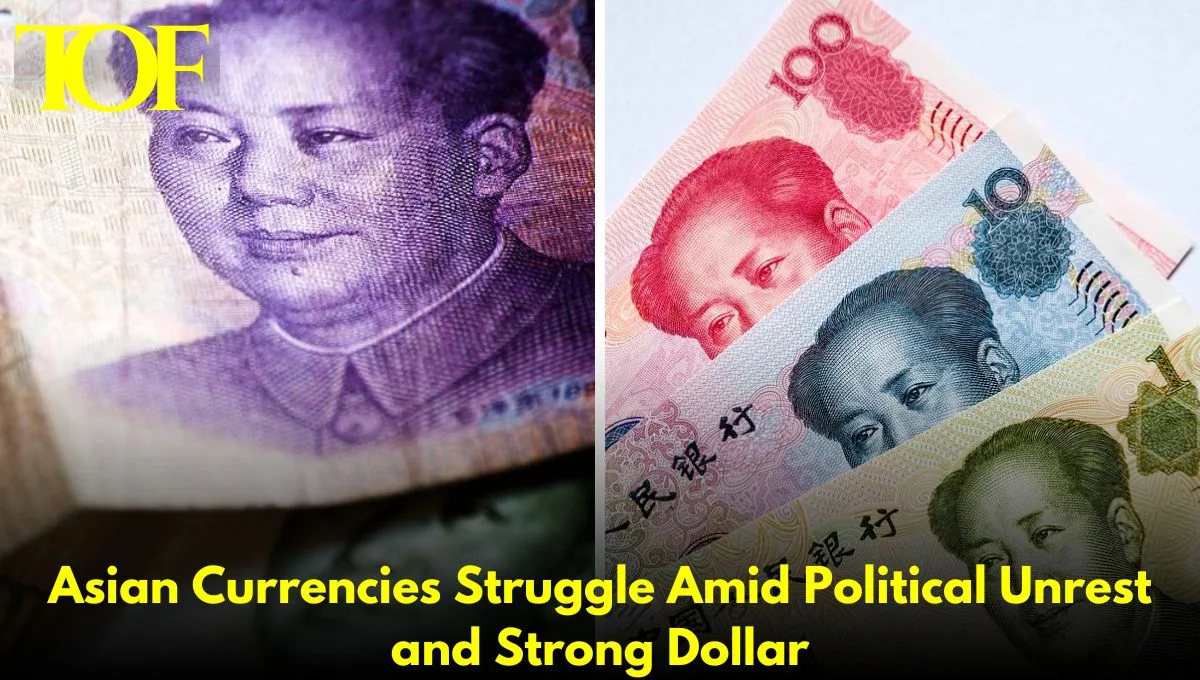Asian currencies were under pressure on Friday as most of them lost. The South Korean won was the worst performer, weighed down by political instability, while the Japanese yen gained as investors expected a rate hike after stronger-than-expected inflation data.
The U.S. Dollar Index gained today as the currency stayed near a two-year peak. Still weighing on Asian currencies, the hawkish Federal Reserve outlook was fewer rate cuts in 2025.
Japanese Yen Gains Amid Rate Hike Speculations
The Japanese yen gained as Tokyo’s consumer price index inflation topped projections in December. The BoJ might raise its near-term interest rate, according to the minutes of its recently concluded policy meeting. However, factory output fell in November, driven by weak foreign demand.
South Korean Won Drops Amid Political Crisis
South Korea’s won softened 0.7% Friday, pushing its weekly loss to almost 2.5%. It has retreated to a 15-year low since internal instability in the face of Prime Minister Han Duck-soo going through an impeachment process while suffering at the hands of President Yoon Suk Yeol early in December from his declared imposition of martial law. Analysts say the won may drop further toward the 1,500 range in 2024.
Mixed Asian Performance
The Indian rupee declined further with a rise of 0.2% in the USD/INR pair. Meanwhile, the Chinese yuan held its ground as domestic demand was weak. The Singapore dollar and Indonesian rupiah strengthened slightly, while the Philippine peso dropped 0.4%.
Asian currencies are still under heavy pressure both from home-grown and external factors, following the continued strength of the dollar. The financial market remains sensitive to the developments; again, the policymakers are still looking at the export-driven economies.
To Read More: Finance

